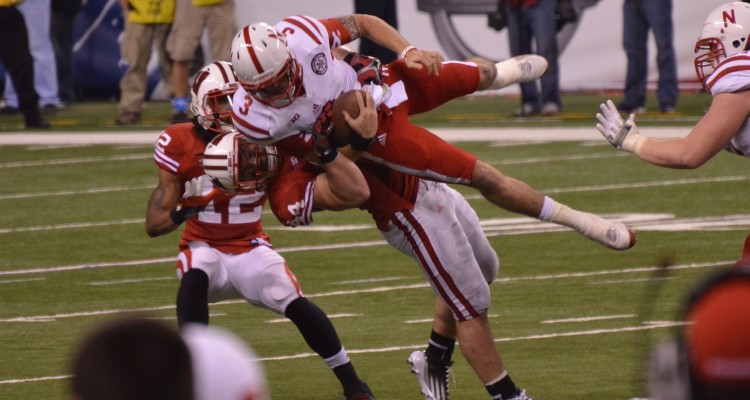Chris Borland, who is quickly becoming a household name, originally left his mark in the NFL as a former linebacker who was recruited by the San Francisco 49ers when playing football at the University of Wisconsin-Madison. Borland not only earned himself a position on the team as a third round draft pick, but also received recognition as one of the top rookies throughout the NFL that was set to make $617,436 in 2015, according to ESPN. But at 24 years old, Borland retired after only one season of pro-football due to the fear of long-term head trauma injuries oftentimes inflicted by football.
His decision not only stunned the NFL, but it also indirectly sparked a positive promotion to all athletes regarding concussion awareness. I concur with his personal decision since thousands of dollars seems incomparable to his overall health. I respect that Borland removed himself from the possibility of becoming another statistic to memory loss, depression, head trauma and brain damage caused by chronic traumatic encephalopathy.
According to Boston University’s CTE center, CTE is defined as an incurable, continuous and deteriorating disease within the brain mostly found in athletes that suffer from recurring brain trauma. This disease is most common within football players and boxers. This trauma is caused by the build-up of tau, which is an abnormal protein that causes neuron death. Boston University neuropathologist Dr. Ann McKee studies deceased NFL player’s brains where she reported that 47 out of 48 brains had CTE. Looking at Dr. McKee’s findings, I can’t fathom how head injuries do not take first priority among players.
Despite advances in helmet technology that help keep players somewhat safer, there is still an abundance of CTE cases that ruin lives from the inside out, which is why there should be programs that cater to educating players on facts about what head trauma can do. The NFL should put more money into relieving the concussion crisis by hiring more concussion monitors. Players should also be required to attend counseling sessions after a certain amount of concussions and more mental health resources should be present.
Personally, I can’t begin to understand how anybody can negatively comment on Borland’s resignation because unlike other football players, Borland absorbed all the facts and repercussions that could have potentially happened to him, and he made a decision based on himself rather than the NFL or the money. Considering autopsy results that revealed large tau concentrations that drove other players such as Hall of Fame recipient Mike Webster and All-Pro Junior Seau into committing suicide, Borland can be seen as a proactive example in the fight for raising concussion awareness. Taking into the account the influences and cases of other NFL stars, continuing football for Borland was not worth it.
In an interview with ESPN’s Mark Fainaru-Wada and Steve Fainaru regarding his decision, Borland said, “From what I’ve researched and what I’ve experienced, I don’t think it’s worth the risk … I feel largely the same, as sharp as I’ve ever been, for me it’s wanting to be proactive. I’m concerned that if you wait ’til you have symptoms, it’s too late … There are a lot of unknowns. I can’t claim that ‘x’ will happen. I just want to live a long healthy life, and I don’t want to have any neurological diseases or die younger than I would otherwise.”
If football is one of the leading causes of CTE and players are granted with this predisposed fact and choose to disregard it, then they are being completely foolish. Borland was clearly in love with the sport since, as an athlete, oftentimes the sport we devote ourselves to is all we know growing up. As a Division I athlete myself, I know that the sport you commit to is one of the most consistent things in your life where each day is centered on an activity that contributes to the sport. For Borland, maybe it was either watching tape, physically training for it, engaging in practice or even going on specific diets that would benefit his overall performance.
To give up a sport at a professional level after working your whole life to achieve it is not an easy decision by any means. Borland’s decision to leave after one year in the NFL is heroic in my eyes because he has now set a shining example to younger athletes across America that one’s overall health is much more important than a sport or a salary. Borland will not be the last athlete to be faced with a difficult decision like this, but because of his decision, he should be seen as a positive influence that those who face his challenge can look up to.


Leave a Reply